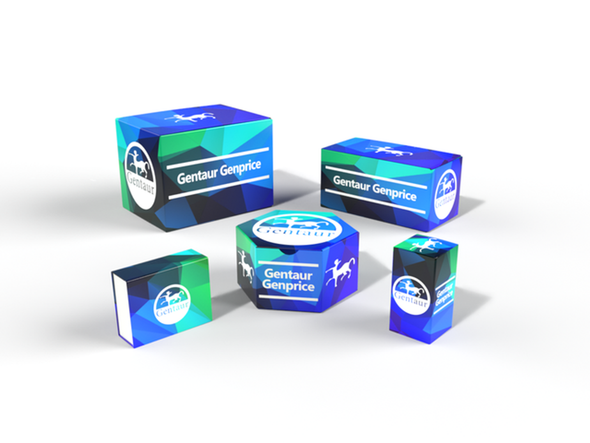BW
Cdk1/Cdc2 (phospho-Y15) polyclonal Antibody | BS5058
- SKU:
- BW-BS5058
- Availability:
- Usually ships in 5 working days
Description
Cdk1/Cdc2 (phospho-Y15) polyclonal Antibody | BS5058 | Gentaur UK, US & Europe Distribution
Host: Rabbit
Reactivity: Human,Mouse,Rat
Application: WB IHC
Application Range: WB: 1:500~1:1000 IHC: 1:50~1:200
Background: Cdc2, an evolutionarily conserved serine/threonine-specific protein kinase, is essential in the cell cycle transition from G2 to M phase. Cdc2 is regulated by association with B-type cyclins and by reversible phosophorylation. Cyclin B binding facilitates the phosphorylation of Cdc2 p34 on three regulatory sites: threonine 14, tyrosine 15, and threonine 161. In higher eukaryotes, Cdc2 is negatively regulated by phosphorylation of two residues located in the ATP-binding site, Thr 14 and Tyr 15. Cdc2 is positively regulated by the cyclin-dependent phosphorylation of Thr 161. Both phosphorylation and de- phosphorylation at Thr 161 are required for progression through the cell cycle.
Storage & Stability: Store at 4°C short term. Aliquot and store at -20°C long term. Avoid freeze-thaw cycles.
Specificity: p-Cdk1/Cdc2 (Y15) polyclonal Antibody detects endogenous levels of Cdk1/Cdc2 protein only when phosphorylated at Tyr15.
Molecular Weight: ~ 34 kDa
Note: For research use only, not for use in diagnostic procedure.
Alternative Names: Cyclin-dependent kinase 1; Cell division control protein 2 homolog; Cell division protein kinase 1; p34 protein kinase; CDK1; CDC2; CDC28A; CDKN1; P34CDC2
Immunogen: Synthetic phosphopeptide derived from human Cdk1/Cdc2 around the phosphorylation site of Serine 795.
Conjugate: Unconjugated
Modification: Phosphorylation
Purification & Purity: The Antibody was affinity-purified from rabbit antiserum by affinity-chromatography using epitope-specific immunogen and the purity is > 95% (by SDS-PAGE) .
Pathway: Cell Cycle Control G1 S Checkpoint,Cell Cycle G2 M DNA Damage Signaling Pathway,Epigenetic Writers and Erasers of Histone H3,










